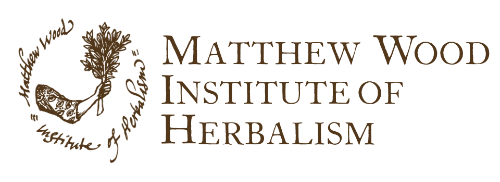When reminiscing on my childhood, few memories are as fond as those of picking wild fruit. I remember the excitement at spotting vibrant red drupelets amongst green foliage and the determination it sparked to eat as many as possible, despite the inevitable prickles and scratches from its protective thorns. It wasn’t until years later, that I learned about the medicinal qualities of the Raspberry leaves.
The raspberry fruit is tart, juicy and sour – which is perfectly refreshing in the heat of summer. By contrast, the leaves are earthy, slightly bitter and astringent. Astringency is not a sensation that we tend to think of as delicious or enjoyable, but it is certainly medicinal.
Tonifying the Female Reproductive System
Most famously, Raspberry leaves are known for their tonifying effects on the female reproductive system. Consumed in the third trimester and in post-partum, Raspberry leaves help to tonify the uterus and the vaginal canal, assisting in recovery after birthing.
Nature’s intelligence is exemplified, when we realize how nutrient-rich Raspberry leaves are, containing vitamin C, vitamin E, calcium, magnesium, iron and potassium, making them a great addition to lactation tea blends to support the nutrient demands of milk production by nursing mothers.
Astringent Support for Weak or Lax Tissues
The astringency of the leaves also makes them a great remedy for conditions that involve excess bodily fluids, or an inability to contain bodily fluids, when tissues have become lax, weak and lacking in tone.
Digestive and Mucosal Support
I’ve often included Raspberry leaves in tea blends intended to bolster the integrity and vitality of the mucous membrane lining of the digestive tract. When the mucous membrane lining is compromised, people may experience a variety of symptoms related to digestive upset, and their ability to absorb nutrients is greatly diminished, further compromising health and well-being in the long-run. Raspberry leaf can help to tone the tissues of the digestive tract, allowing the mucous membrane to regenerate, thereby relieving symptoms and increasing one’s ability to properly digest and assimilate nutrients.
Respiratory Benefits
Raspberry leaf is also a wonderful ally when it comes to the upper respiratory system. A Raspberry leaf infusion can be helpful when experiencing a runny nose, post-nasal drip and congested mucous membranes.
A Growing Appreciation
Learning about the medicinal properties of Raspberry leaves certainly expanded my appreciation for those silvery-leaved prickly bushes. Nature never ceases to amaze me, and I am ever grateful for the floral pharmacy that is available to us all.
Those are the medicinal uses I was taught for Raspberry leaves, but I’m curious, how do you use Raspberry medicinally?!
Want to learn more?
Your herbal adventure awaits! Whether you’re a green thumb or just getting started, join a FREE Learn Herbal Wisdom Group:
- Facebook Learn Herbal Wisdom Group.
- Craving perks or a quieter space? Our MWIH online community offers the same great content—plus a little something extra!
**Disclaimer**
The information provided in this digital content is not medical advice, nor should it be taken or applied as a replacement for medical advice. Matthew Wood, the Matthew Wood Institute of Herbalism, ETS Productions, and their employees, guests, and affiliates assume no liability for the application of the information discussed.
The information provided in this digital content is not medical advice, nor should it be taken or applied as a replacement for medical advice. Matthew Wood, the Matthew Wood Institute of Herbalism, ETS Productions, and their employees, guests, and affiliates assume no liability for the application of the information discussed.


